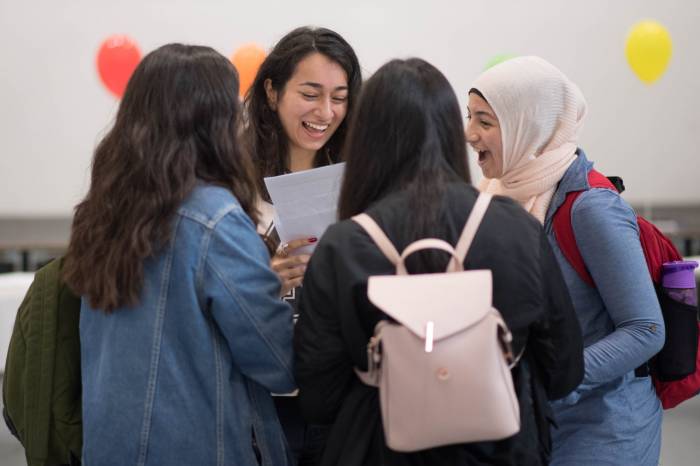Ministers are looking to clamp down on universities that are irresponsibly handing out places on degree courses to sixth-formers, regardless of their A-level grades, in a bid to put “bums on seats”.
A government source told the i that education secretary Damian Hinds held meetings on A-level results day with senior figures from the universities watchdog, the Office for Students, and Ucas.
The Department for Education (DfE) said it expects the regulator "to take appropriate action".
Recent figures from Ucas show that nearly a quarter of 18-year-olds in England, Wales and Northern Ireland were handed at least one guaranteed place on a degree course regardless of their grades.
Almost 68,000 unconditional offers were made this year, compared to less than 3,000 five years ago, the data reveals.
Headteachers have renewed calls for an end to the practice after it emerged this week that some schools had seen their A-level pass rates fall dramatically as a result of a rise in unconditional offers.
Sir John Rowling, chair of Partners in Excellence (PiXL), a network of schools in England and Wales, told Tes that some students were not going to school after they received the offers.
One school in the north of England saw its pass rate (A* to E grades) drop from 74 per cent last year to just 14 per cent this year - with 40 students being handed unconditional offers.
The proportion of students gaining pass grades at A-level nationally dropped to its lowest point in eight years amid concerns that unconditional offers and exam reforms would have an impact.
A DfE spokesperson said: "Giving out unconditional places just to put 'bums on seats' not only undermines the credibility of the university system but does students a disservice by distracting them from their studies and swaying their decisions.
"We are concerned about the rise in unconditional offers. The Office for Students are closely monitoring the number being issued and we fully expect them as the regulator to take appropriate action."
Speaking to The Independent about unconditional offers ahead of results day, Michael Barber, chair of the Office for Students, said: “Some universities seem to be lowering the tariff because they are worried about not recruiting enough students.
“I think the sector needs to think about this very hard.”
There was intense competition among universities to attract students this year.
Figures released on Thursday by Ucas showed the total number of students accepted onto courses was down 1 per cent compared with the same point in 2017.
However the proportion of 18-year-olds being accepted on to courses broke records.
In an exclusive interview with The Independent earlier this year, Ucas boss Clare Marchant called for an urgent rethink on universities using unconditional offers across-the-board.
Universities minister Sam Gyimah has previously branded the rise in unconditional offers as "irresponsible" and has warned that the practice could undermine the credibility of the system.
And on Thursday, Mr Hinds said he was “concerned” about the rate of growth in these offers.
The Independent
More about: education
















































